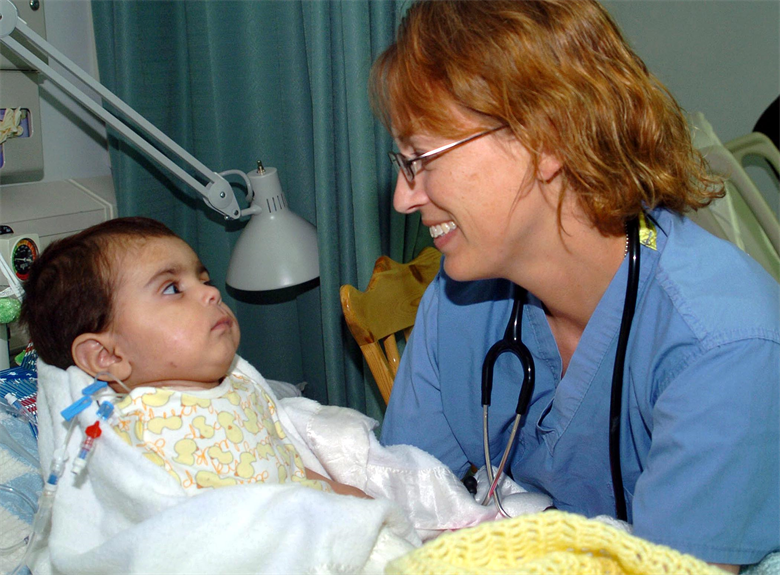With inflation driving up costs and more corporations cowering to liberal special interest groups, it’s timelier than ever for Christians to consider enrolling in a health care sharing ministry.
Health care sharing ministries are not health insurance. And that’s a good thing.
Members of these ministries save money on health care, avoid insurance hassles and enjoy more flexibility in choices of providers and treatments, including complementary and alternative medicine providers. Families and individuals share expenses while connecting spiritually with other believers.
A big selling point for many members is that they can avoid having their health care dollars support practices they consider immoral. Many insurance companies now cover abortions and gender-bending drugs and surgery — often under pressure from state laws or “woke” corporations who want their employee health plans to reflect their ideology — which are contrary to God’s biblically stated culture of life.
Following the Supreme Court’s Dobbs ruling overturning Roe v. Wade last June, major companies announced that they would subsidize out-of-state travel for employees to get abortions if they live in an abortion-restricted state. These include Amazon, Apple, Bank of America, Comcast, Airbnb, CVS Health, CNN, DoorDash, Sony, Tesla, Lyft, Mastercard, Microsoft, Netflix and large banks such as J.P. Morgan Chase and Bank of America.
This constitutes gross legal discrimination against pregnant women who are facing expenses or travel needs related to actually delivering their children, such as seeking out-of-state care for high-risk pregnancies. That’s bad enough, but it also means that Christians who rely on health insurance may be unwittingly contributing to the insurance fund that directly pays for abortions.
Please follow LifeNews.com on Gab for the latest pro-life news and info, free from social media censorship.
Pro-abortion activism is hardly limited to mega-corporations. “Research also shows that small companies are more likely to provide abortion coverage under their employer health insurance plan than large companies,” according to the Kaiser Family Foundation, likely because smaller firms are fully insured with plans designed by insurance companies, whereas bigger firms can design their own plans.
Health insurance has become a heavily biased industry, requiring policyholders to pay for procedures or medications that might violate their beliefs. Some of it is government-driven. For example, in Illinois, “state-regulated private health insurance plans that offer pregnancy-related benefits” must also cover abortion. This includes Affordable Care Act-compliant plans.
Health care sharing ministries should not be confused with health insurance. Health insurance is, by definition, a contract with a third party to pay for medical services in exchange for premiums. Being part of a health care sharing ministry allows members to bypass the third parties. They deal directly with a medical provider. Their expenses are shared directly from member to member.
Health care sharing ministries don’t have to be complicated. Every month, members contribute a set amount to be shared with other members to pay medical bills. Each ministry does this differently. Some have an online system to coordinate sharing, while others expedite sending individual checks from members to the member in need. When members go to a doctor or hospital or incur a medical cost, they submit the bill to their community through the ministry.
Federal “transparency” rules now require hospitals to reveal their pricing structure before a procedure. Unfortunately, many hospitals are in violation of this law, leaving many sick patients in the dark about their health care costs until it’s too late. Health care sharing ministries help coach their members on how to identify lower-cost health care providers — such as freestanding labs and imaging centers rather than hospital-owned facilities — that offer discounted cash prices that are lower than typical commercial rates. Expenses that meet the ministry’s guidelines are shared by other members, and payment goes to the family in need or directly to the doctor.
Since 1981, health care sharing ministries operating in all 50 states have facilitated the sharing of billions of dollars in medical expenses for their members. Each month, many “big needs” are handled, from open heart surgery to long-term cancer treatment.
The Healthcare Sharing Accreditation Board, a national, independent panel, was launched last year to help ensure that “Health Care Sharing Ministries meet high standards of quality and ethical business practices.” Christians who are exploring membership in a health care sharing ministry should look ask if the ministry has been accredited or is undergoing the process.
As 501(c)(3) charities, the ministries must abide by state and federal laws governing charities, including the consumer protection laws that apply to charitable organizations, as enforced by the state’s attorney general and the IRS. They are not governed by state or federal health insurance laws because they are not health insurance. Again, that’s a good thing, affording flexibility and less red tape as well as clarity for consumers.
In addition to aiding individuals and families, these ministries often provide lower costs for entrepreneurs. Small businesses and contractors have always been the heartbeat of the American economy. They can greatly benefit from the higher touch and lower cost of a faith community serving as their health care solution.
Millions of self-employed Americans aren’t part of the big health care system. Christian entrepreneurs and small-business owners want alternatives to insurance carriers that cost too much and use their fees for objectionable things like abortion. Many are learning that health care sharing ministries are right for them.
One of the greatest strengths of America is its roots in communities of like-minded believers, relying on one another and forging their own path without interference from the distant halls of secular power.
Health care sharing ministries epitomize that kind of freedom for millions of people.
LifeNews Note: Katy Talento is executive director of the Alliance of Health Care Sharing Ministries (ahcsm.org). She was the top health adviser on the White House Domestic Policy Council under former President Donald Trump.








